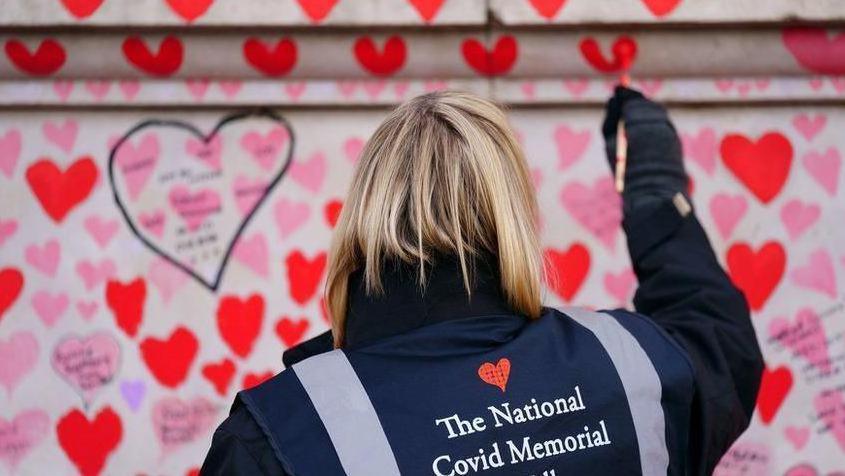NI now better prepared for another pandemic, says O'Neill
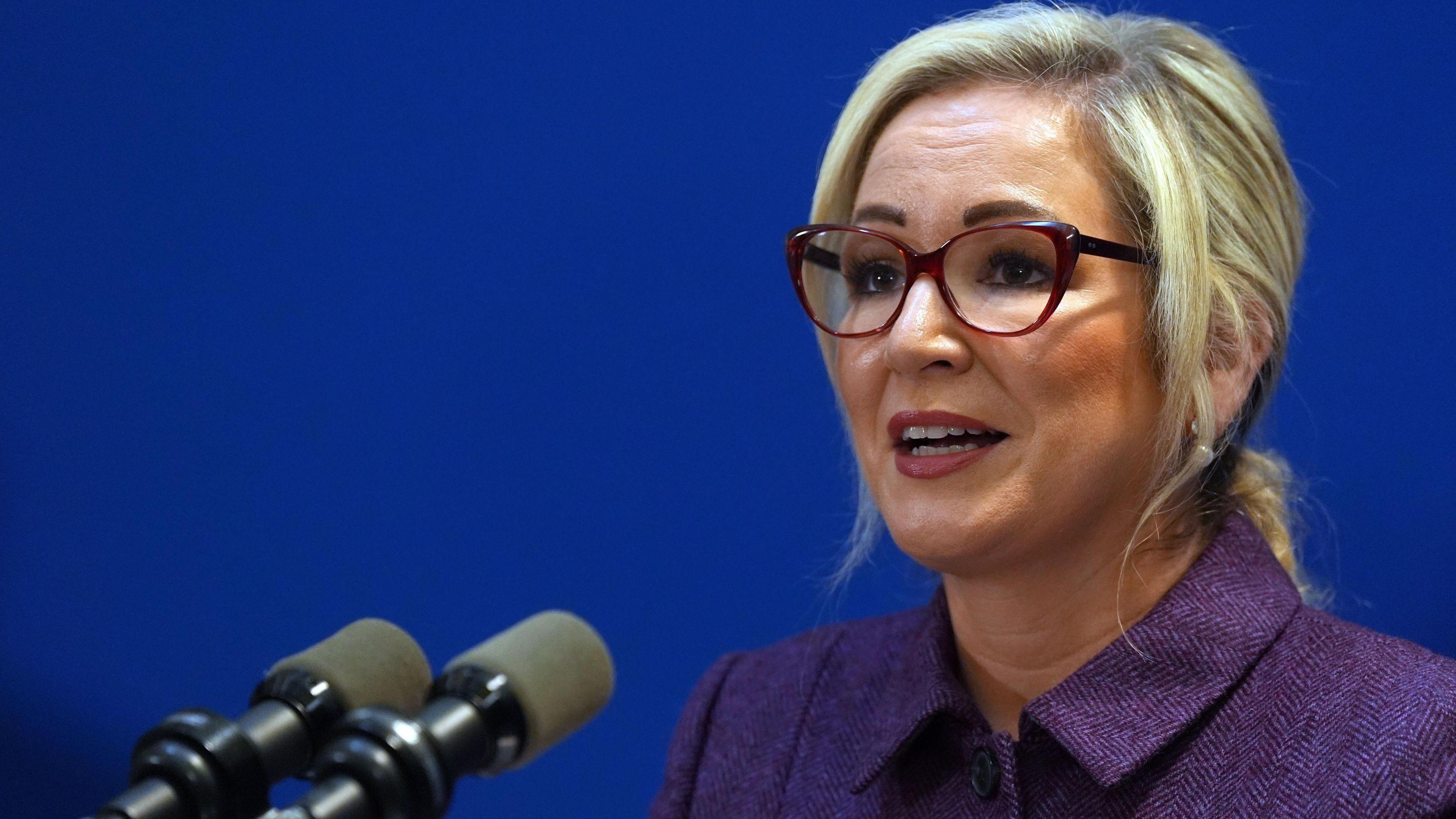
Michelle O'Neill, who was deputy first minister during the Covid-19 pandemic, was responding to the report by the UK Covid-19 Inquiry
- Published
The Stormont Executive would now be better prepared for a health pandemic, following damning criticism of how it handled the Covid-19 crisis, First Minister Michelle O'Neill has said.
She said it was important to "learn lessons" for the future and said the executive was already putting in place positive changes.
O'Neill, who was deputy first minister during the pandemic, was responding to the report by the UK Covid-19 Inquiry.
The inquiry found that decision making in Northern Ireland "was chaotic, and infected by political machination".
In her report, Baroness Heather Hallett said "insufficient attention" was given to the prospect of a second wave of the virus, with only limited contingency planning in place for reintroducing restrictions.
Baroness Hallett said the relationships between ministers were "poor" and "detrimental to good decision making".
On "multiple occasions" decision making was "marred by political disputes between the Democratic Unionist Party and Sinn Féin ministers," she said.
'Regrets'
O'Neill told BBC News NI she welcomed the inquiry as "it's crucially important that we learn lessons".
"We've already started to change in terms of how we prepare for emergency planning, also in terms of recruiting our own Chief Scientific Advisor.
"Those are all lessons learned that automatically came, which is a direct impact of how we had responded to the pandemic.
"I think it's really important that as a whole of the executive that we reflect on all those lessons and take them on board and actually make changes and improvements," she said.
Northern Ireland: Five takeaways from the UK Covid-19 Inquiry's second report
Describing it as "one of the most challenging times" of her career she added: "Of course we have to reflect and of course there's things we could have done better."
When it was put to her about her decision to attend the funeral of Bobby Storey and how that undermined public confidence, she spoke of "regrets" she has about that time.
"I've spoken about it on numerous occasions including to the inquiry itself and I'm very mindful of all those people that lost a loved one and how my actions would have caused them even more harm and hurt," she added.
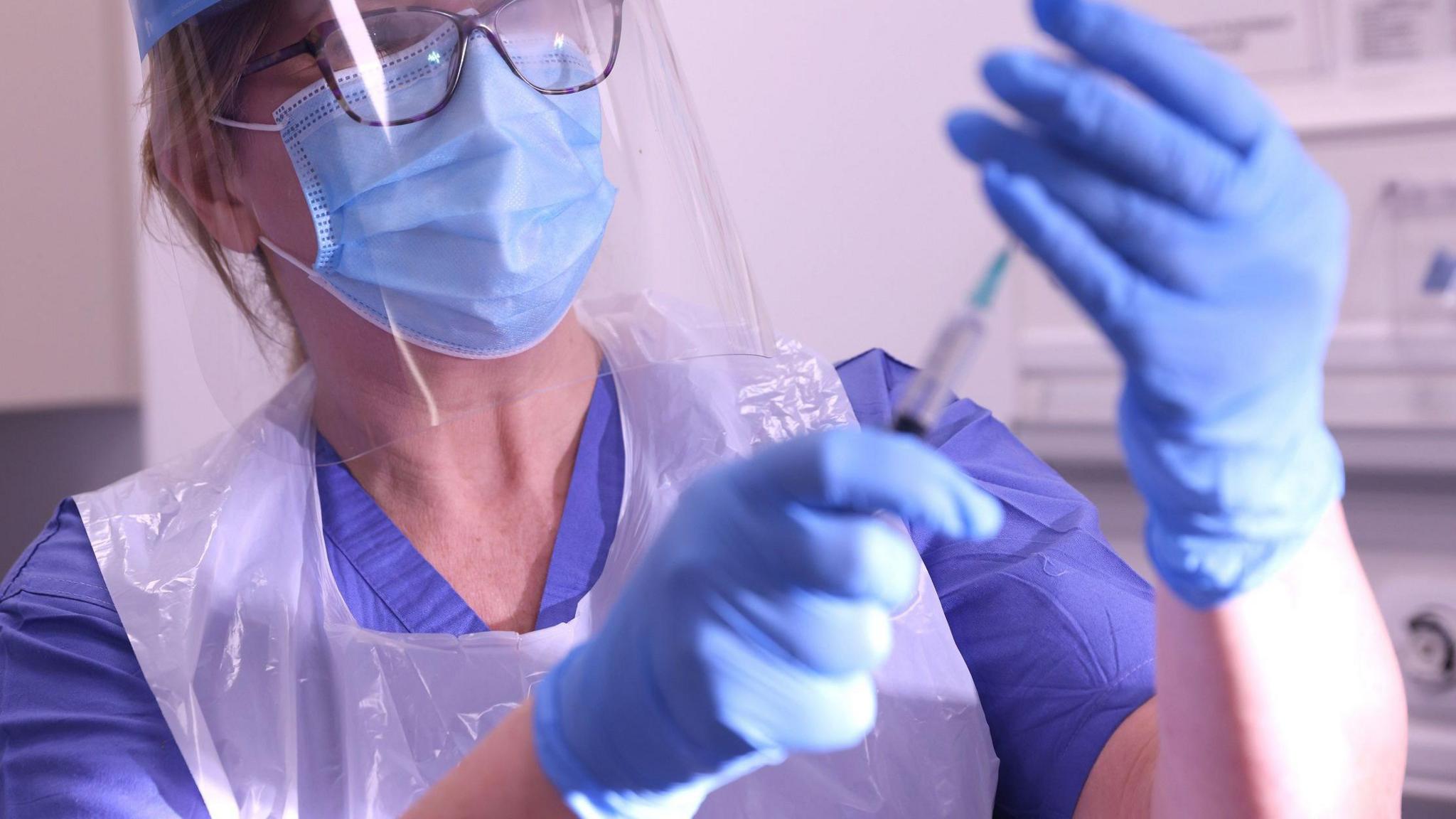
'Lessons to learn'
In a statement on Friday the DUP said they welcomed the report.
The party said their ministers "all at times prioritised" what they believed to be best interests of the people of Northern Ireland, adding they "fully cooperated with the inquiry".
"This was an unprecedented and extraordinarily difficult period for everyone across our society," the statement said.
It added that people in Northern Ireland, "including those on the front line of our health service, worked tirelessly to protect lives and safeguard livelihoods".
"It is important that public messaging is never again undermined by those responsible for setting rules failing to follow them. That had a significant impact on public confidence at a crucial time."
The statement said that there will "lessons to learned" from the report.
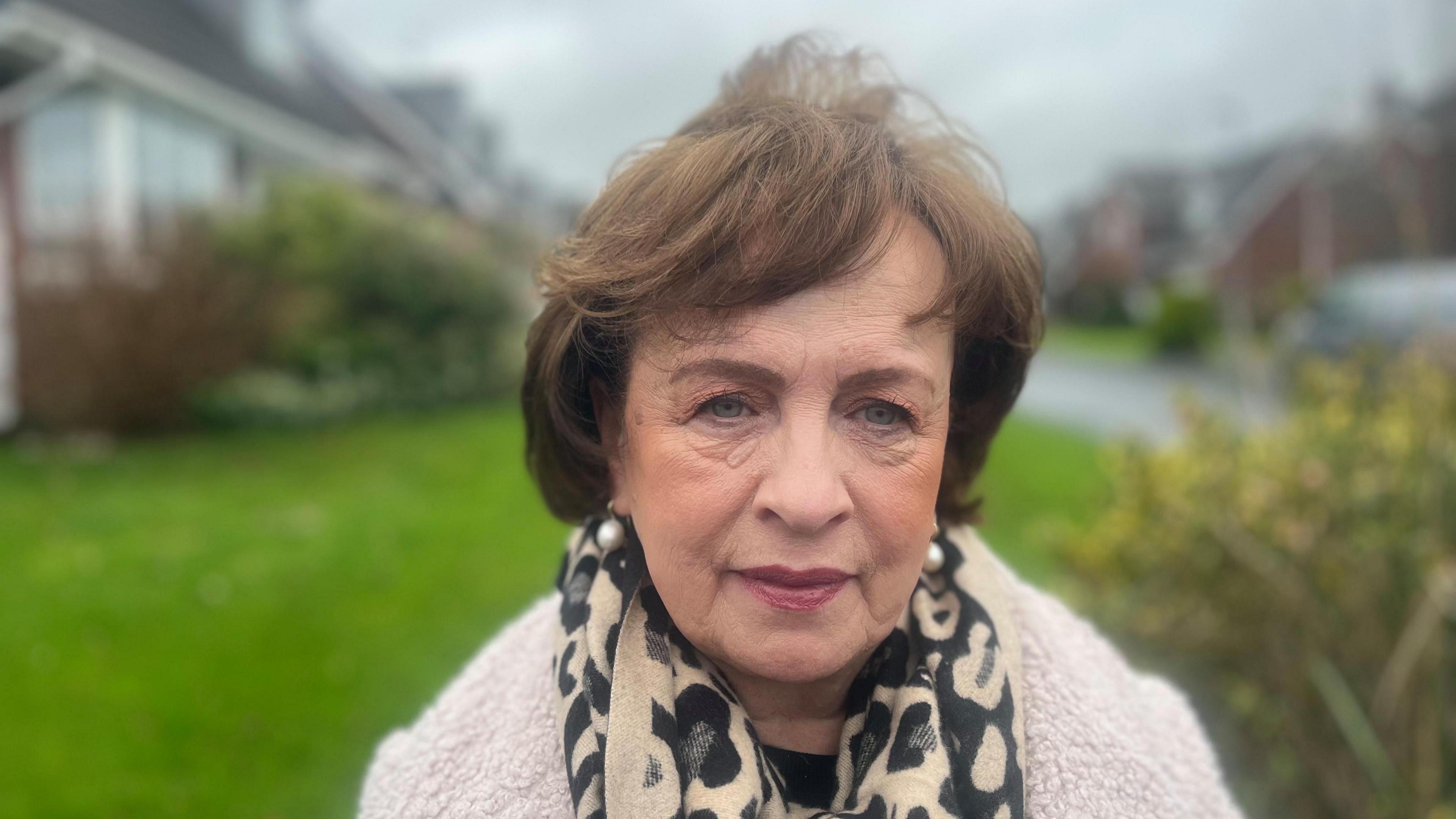
Diane Dodds says most decisions were taken "without any controversy"
DUP MLA, Diane Dodds, who was economy minister for a time during the pandemic, defended the executive's handling of the Covid-19 pandemic saying the "vast majority" of decisions were taken "without any controversy or any real issues whatsoever".
However, Dodds told the BBC's The View programme: "We operate in a mandatory coalition in Northern Ireland, that means we have parties with differing views on many subjects."
She added that, if a pandemic were to re-occur, the executive should make sure that "we are well prepared, have a considered response, and there should be a contingency plan that is fully operational and able to be stood up at very short notice".
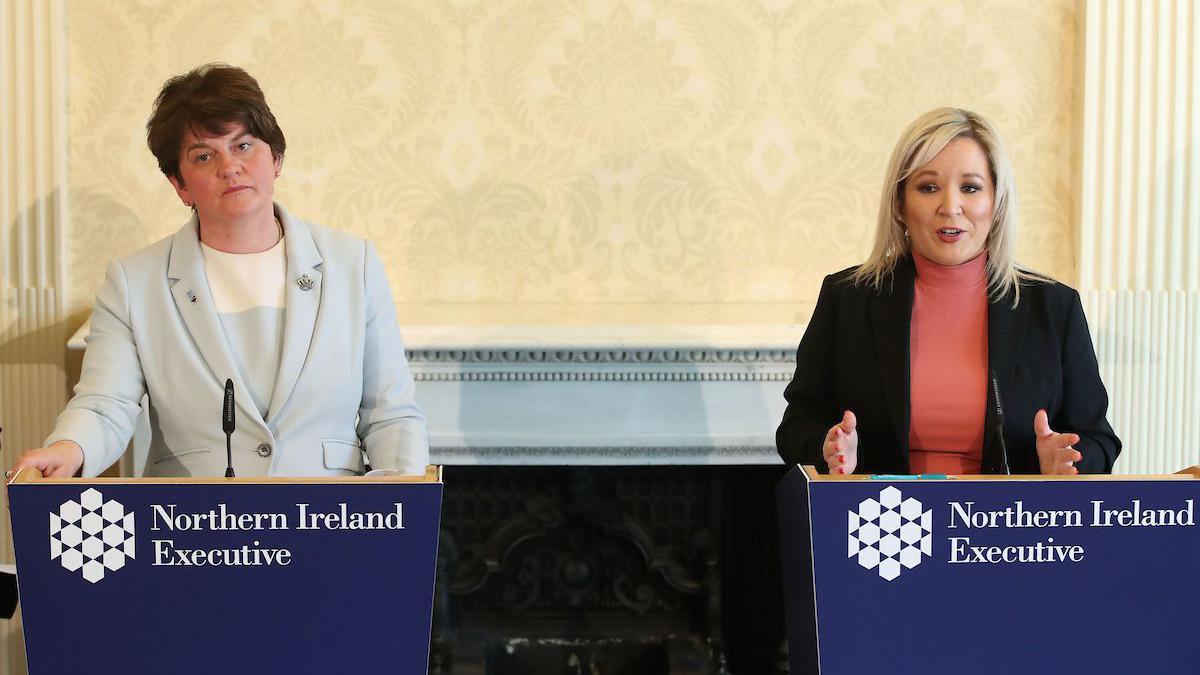
Then First Minister Arlene Foster and Deputy First Minister Michelle O'Neill pictured at a press conference on the 20 March 2020 shortly before lockdown in Stormont Castle, Belfast in relation to Covid-19
The Ulster Unionist Party (UUP) MLA, Robin Swann, was health minister at the time of the pandemic.
The UUP said he "acted on the best scientific advice available" and that "his guiding light at all times was keeping the public safe".
"We were deeply dismayed by the lack of seriousness shown by some executive colleagues during this critical period, including persistent briefing against others and the leaking of confidential information."
They added that the report's findings on Sinn Féin members attending the funeral of Bobby Storey were "significant" and that the decision to attend "undermined public trust".
The statement said it was clear that "DUP colleagues were largely driven by political opportunism and sought to create division within the executive rather than focus on the collective challenge".
Dodds responded to the criticism on BBC One's The View, saying: "Pot, kettle, and black comes to mind."
"This is an opportunity that Robin Swann and the Ulster Unionists have taken to have a swipe at the DUP," she said, adding that there are "many issues that could be held against whoever within the executive".
The Social Democratic and Labour Party (SDLP) Leader of the Opposition, Matthew O'Toole, said the findings of the report "again highlight the lack of political leadership at Stormont".
He said the report "underlined the need for a serious programme of institutional reform to ensure better government".
Traditional Unionist Voice (TUV) leader Jim Allister called the executive "dysfunctional as ever", adding that "even for Covid" ministers "couldn't get it together".
A spokesperson for The Executive Office said the report is a "significant milestone", and that "there are lessons to be learned and the cross-departmental group established to take forward recommendations continues to meet and will now consider today's findings".
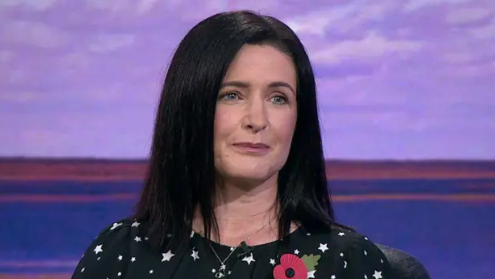
Alliance MLA Paula Bradshaw sat on Stormont's health committee during the pandemic
Alliance MLA Paula Bradshaw, who sat on Stormont's health committee during the pandemic, said Baroness Hallett's report is "damning" and show the need for government reform.
The problems in decision making details, she added, "undoubtedly" led to loss of life
Bradshaw told BBC Radio Foyle's North West Today programme a four week circuit breaker in October 2020, when "the scientific evidence was for six weeks of lockdown", led to a 25% rise in Covid-19 cases.
"And there is a direct correlation between that 25% increase in cases and the number of deaths," she said.
She said there is a need for "urgent and widespread institutional reform here in Northern Ireland".
What are the report's recommendations?
The report gives a long list of suggestions, including 19 specific recommendations for Northern Ireland, external, to avoid "a potential vacuum of decision-making powers".
They include:
Reconstructing the role of chief medical officer for Northern Ireland as an independent advisory role.
A review into how powers are delegated in government during an emergency.
Amending the ministerial code to prohibit the disclosure of individual views expressed during meetings of the Northern Ireland Executive Committee.
Establishing structures to improve communication between England, Scotland, Wales, and Northern Ireland during an emergency.
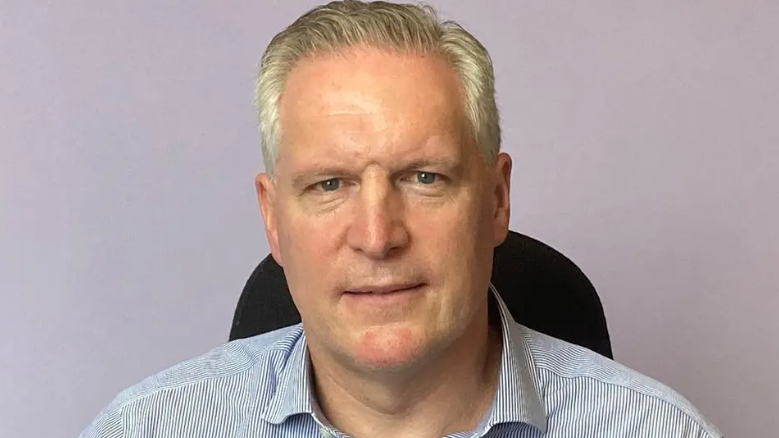
Dr Alan Stout said the report was "not surprising"
Dr Alan Stout, chair of the British Medical Association (BMA) in Northern Ireland, said the report is "not surprising and it's also not good reading".
"The first wave, the initial stages, the report covers this quite well. We were very, very dependent on the UK response and we very much followed the UK response," he told BBC Radio Ulster's Good Morning Ulster programme.
"And actually, Northern Ireland probably performed slightly better."
"But it was that second wave, and that's where that word chaotic comes in," Dr Stout added.
He said it will be "disappointing and ironic" if the report is used "as an excuse for political parties just to take a pop at each other again" rather than learning.
Need to be 'more cooperative'
Former chief nursing officer in Northern Ireland Professor Martin Bradley said there is "nothing very new in all of this".
"I think that it wasn't our finest hour as far as politics was concerned," he said.
"If we are going to learn any lessons, we need to be more cooperative with each other, and we need to have more empathy with each other; understanding that if you rub people's noses in it from a political point of view then you're not going to get anywhere."
- Published23 hours ago

- Published1 day ago
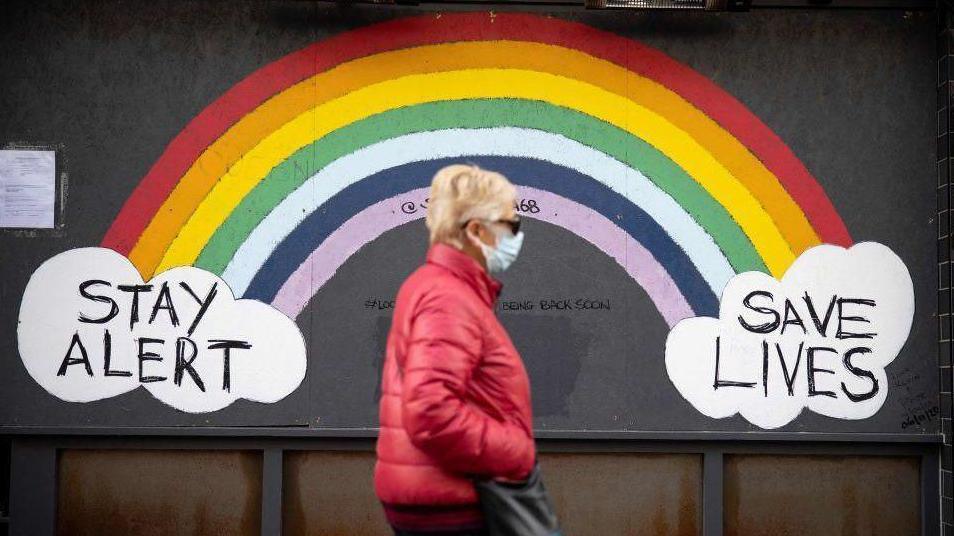
- Published23 hours ago
